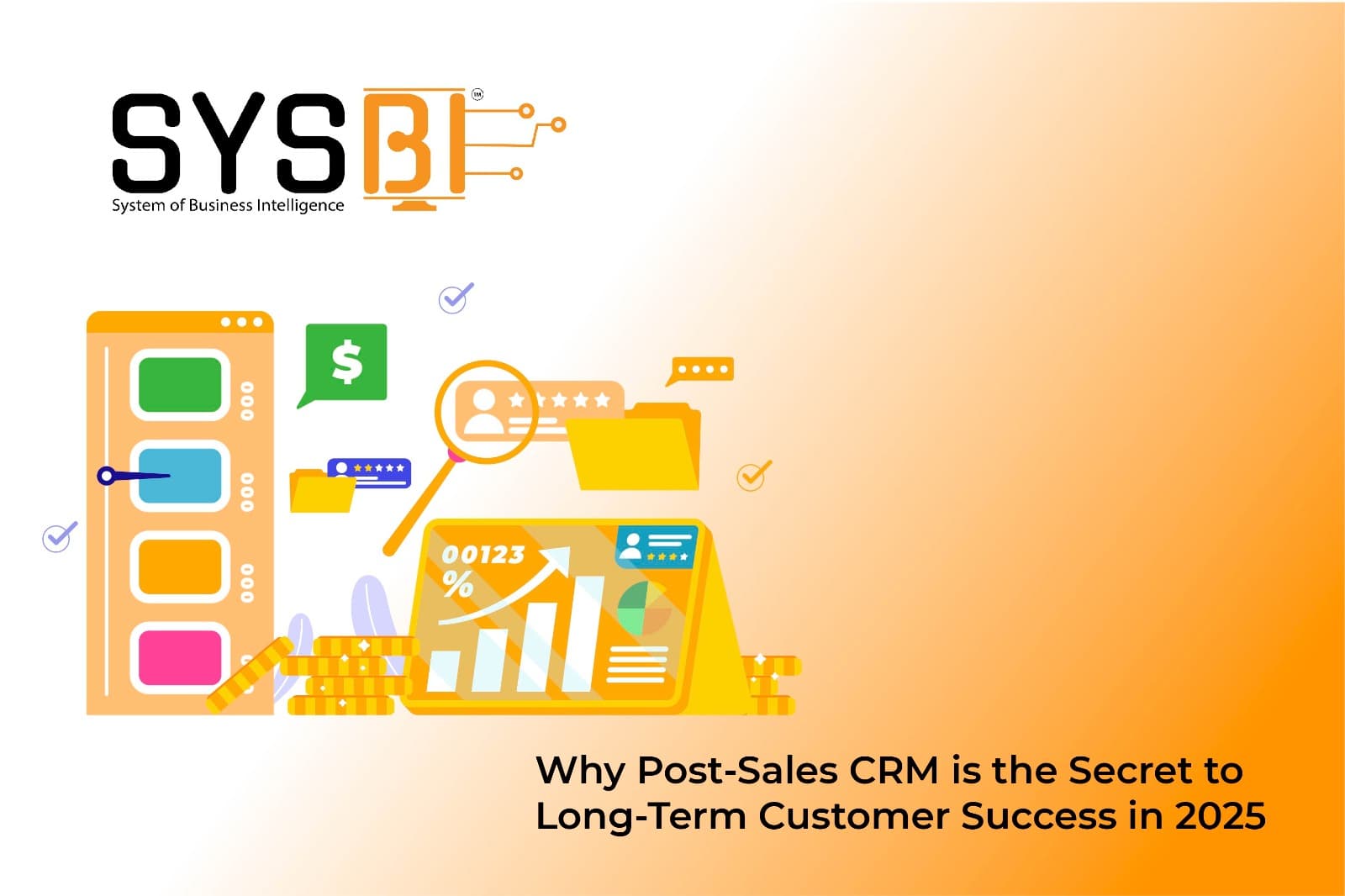by SYSBI
Why Post Sales CRM is the Secret to Long-Term Customer Success in 2025
Why Post Sales CRM is the Secret to Long-Term Customer Success in 2025
Table of Contents
- What is Post Sales CRM?
- Why Post Sales CRM Matters More Than Ever in 2025
- Key Features of a Post Sales CRM in 2025
- How Post Sales CRM Impacts Business Success
- Practical Strategies to Implement Post Sales CRM
- The Future of Post Sales CRM in 2025 and Beyond
- Conclusion
In 2025, winning new customers is no longer enough to guarantee business growth. The real challenge lies in keeping those customers engaged, satisfied, and loyal. This is where Post Sales CRM becomes a powerful tool for sustainable success. Businesses are realizing that the sale is just the beginning of the customer journey, and what follows determines whether a customer will stay loyal or switch to a competitor.
A well-structured Post Sales CRM strategy ensures that your customers don’t feel abandoned after purchase. Instead, they receive continued support, personalized experiences, and reasons to keep coming back. In this blog, we’ll explore why Post Sales CRM is the secret weapon for long-term customer success in 2025.
What is Post Sales CRM?
Post Sales CRM (Customer Relationship Management after purchase) refers to all the processes, tools, and strategies used to manage customer relationships after the sale is closed. Unlike pre-sales CRM, which focuses on lead generation and deal closure, post sales CRM ensures ongoing support, smooth onboarding, proactive engagement, and relationship nurturing.
Think of it as the bridge that transforms a one-time transaction into a long-term relationship.
Why Post Sales CRM Matters More Than Ever in 2025
- Customer Retention is the New Growth Driver: Acquiring a new customer costs significantly more than retaining an existing one. In fact, studies suggest it’s 5–7 times more expensive to acquire a new customer than to retain one. With rising digital advertising costs in 2025, businesses must focus on retention, and Post Sales CRM is the most efficient way to achieve it.
- Rising Customer Expectations: Modern customers expect more than just a product—they expect experiences. With Post Sales CRM software, businesses can provide personalized follow-ups, timely support, and proactive solutions. This level of attention strengthens loyalty and prevents churn.
- Data-Driven Personalization: Today’s CRM systems for post-sales management come equipped with AI-driven analytics. They track purchase history, customer preferences, and behavior patterns. This allows companies to send personalized recommendations, loyalty rewards, and tailored offers, making the customer feel valued via Post Sales CRM.
- Opportunities for Upselling and Cross-Selling: A strong Post Sales CRM system doesn’t just retain customers; it also boosts revenue. By analyzing customer needs and usage patterns, businesses can recommend upgrades, complementary products, or higher-value packages, leading to natural upselling and cross-selling opportunities.
- Building Advocacy and Referrals: Satisfied customers often turn into brand advocates. With Post Sales CRM tools, businesses can gather reviews, encourage referrals, and run loyalty programs. Word-of-mouth recommendations remain one of the most powerful marketing strategies, and post-sales management directly contributes to this.
Key Features of a Post Sales CRM in 2025
- Automated Onboarding Workflows – Guiding customers through setup and training after purchase.
- Multi-Channel Support Integration – Offering assistance via email, chat, WhatsApp, or social media.
- AI-Powered Customer Insights – Predicting customer needs and behavior for proactive engagement via Post Sales CRM.
- Feedback & Ticket Management – Ensuring issues are resolved quickly to improve satisfaction.
- Loyalty & Reward Tracking – Encouraging repeat purchases and long-term relationships through Post Sales CRM.
- Performance Dashboards – Monitoring customer retention, churn rates, and lifetime value.
How Post Sales CRM Impacts Business Success
- Higher Retention Rates – Customers stay longer when they feel supported via Post Sales CRM.
- Reduced Churn – Early detection of dissatisfaction prevents losses.
- Increased Customer Lifetime Value (CLV) – Each customer contributes more revenue over time through Post Sales CRM.
- Better Brand Reputation – Positive experiences lead to glowing reviews and referrals.
- Sustainable Growth – Instead of chasing constant new leads, businesses grow through loyalty.
Practical Strategies to Implement Post Sales CRM
- Streamline Customer Onboarding: Provide guided tutorials, welcome emails, and dedicated support via Post Sales CRM.
- Set Up Proactive Support: Use analytics to anticipate and solve issues before customers complain through Post Sales CRM.
- Leverage Automation & AI: Automate renewal reminders, follow-ups, and surveys while personalizing experiences using Post Sales CRM.
- Collect and Act on Feedback: Ask for reviews and ratings to improve customer experience and credibility via Post Sales CRM.
- Introduce Loyalty Programs: Reward loyal customers with points, discounts, or exclusive offers through Post Sales CRM.
The Future of Post Sales CRM in 2025 and Beyond
- Predicting customer churn before it happens.
- Offering hyper-personalized product recommendations via Post Sales CRM.
- Providing real-time support through AI chatbots.
- Integrating with ERP, HRMS, and inventory systems for seamless business operations.
In 2025, businesses that master Post Sales CRM will be the ones leading their industries.
Conclusion
Customer success in 2025 is about creating lifelong customer relationships. Post Sales CRM ensures support, engagement, and motivation to stay loyal. From reducing churn to driving upsells and referrals, post-sales management is the foundation of long-term growth.
Shift focus from sales-driven growth to relationship-driven growth powered by Post Sales CRM.







